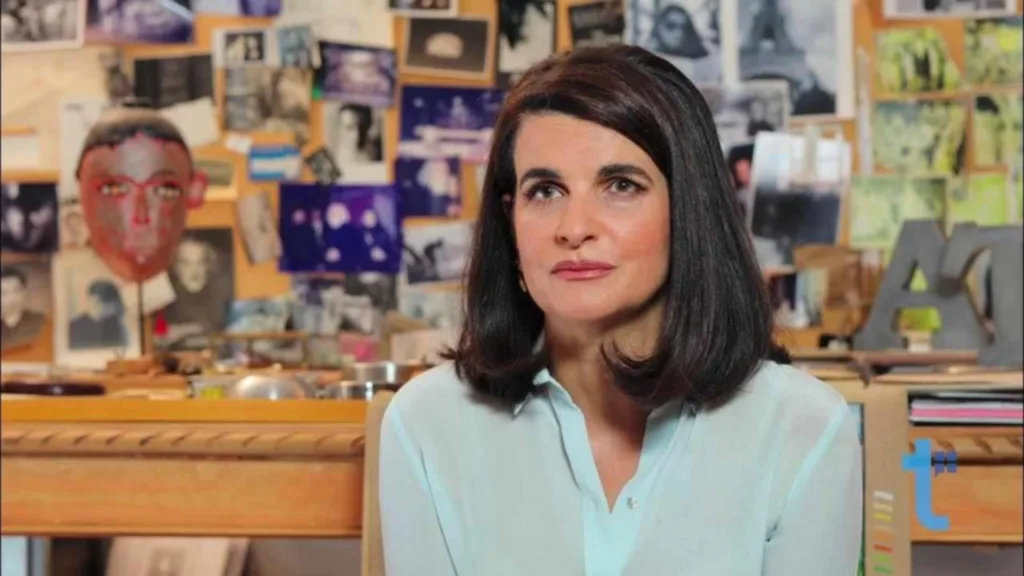By Nikos Syriodis
Eva Nathena is one of the most renowned Greek set and costume designers, celebrated for her creativity and artistic approach, evident in many major productions. She has collaborated with some of the most prestigious names in the arts. Her career is marked by a sensitivity to detail and artistic expression. Her ability to blend tradition with modern aesthetics is one of the key elements that distinguishes her in the world of art.
Born in Heraklion, Crete, she studied at the Athens School of Fine Arts, with Chronis Botsoglou as her painting instructor and Giorgos Ziakas as her set design tutor. Dionysis Fotopoulos served as her mentor. She is a multifaceted personality, always interesting to talk to, as she avoids clichés and brings originality to every conversation. Through her words, you understand why she has reached such a high level, even though achieving this was never her ultimate goal.
In an exclusive interview with The Greek Herald ahead of the screening of The Murderess at the upcoming Greek Film Festival in October, she shared her thoughts. This 2023 Greek production, directed by her and written by Katerina Bei, is based on the novel by Alexandros Papadiamantis.
She discussed the film’s selection for this year’s Academy Awards, what she thought when she said that The Murderess wasn’t destined to become a huge success, and what she has regretted in life. She also shared her greatest dream and sent a message to the Greek community in Australia.
The Murderess has been selected to represent Greece at this year’s Academy Awards. How do you feel?
I received the news while in New York at the Greek Film Festival. I immediately wanted to speak with my producer, Dionysis Samiotis, because at no point in this journey was I alone. It was never just ‘me’. It was always ‘us’.
You’ve previously stated that The Murderess wasn’t destined to be a huge success and that it wouldn’t be a film watched by many people. In the end, you were proven wrong—spectacularly. What didn’t you anticipate?
I didn’t expect that the majority of tickets would be sold to young people—students and university-goers! In hindsight, I have an explanation: I spent years trying to master Papadiamantis’ complex language. After countless readings, I realised he embedded soundscapes into his language. I recorded these in a unique, almost obsessive score, which later became visual landscapes. Today’s youth, more than ever, are children of imagery. I believe they connected with the film’s visuals, understanding much more than perhaps adults did.
Your film will be screened at the Greek Film Festival. What impression will it leave on the expatriates who choose to come and watch it?
Some say it’s a heavy, harsh film. But it’s not the film that’s harsh; it’s the truth it contains. I say that when you recognise something, you acknowledge it, understand it, and bring it to light, leading to redemption and catharsis. I always wish the audience to connect with the movie—not to enjoy it. This isn’t a film to be enjoyed.

A girl from Heraklion, born and raised in the countryside, with a father who wanted her to be a doctor or a lawyer, but whose artistic talent inevitably led her down another path. Was it fate?
Creating this film felt like a life’s mission—not necessarily mine, but one I was determined to see through. I could have taken any role behind the camera as long as I saw it come to life. If that’s what you mean by fate, then I suppose it was.
If you could look back on your life and career, is there anything you regret or wish you’d done differently?
In my career, I don’t think I have any regrets. In life, perhaps the only thing I would have liked is to have had more children.
What is your greatest professional dream?
It’s not a professional dream in the narrow sense of the term. It’s to complete something I started years ago when I went to teach in prisons. I want to finish it with a film, that’s what I mean.
How would you like to be remembered when you eventually retire?
I don’t know. I’d like my children to remember me as a good mother. And my friends and colleagues to do the same. My desire for personal legacy is quite modest.
Finally, what message would you like to send to the Greeks of Australia?
Stay connected with films. With art in general. Art conquers even our transgressive selves. I’ve seen it perform miracles! That’s the message I try to pass on to people, even to my students in prison. Thank you.
Further details on the upcoming Film Festival, including how to buy tickets, can be found at https://greekfilmfestival.com.au/
Event details:
- What: Premiere of Murderess by Eva Nathena
- When: Saturday, 19th October 2024 | 8.30pm
- Where: Palace Cinema Moore Park (122 Lang Rd, Moore Park, NSW, 2021)
- Tickets: https://shorturl.at/DgicB
